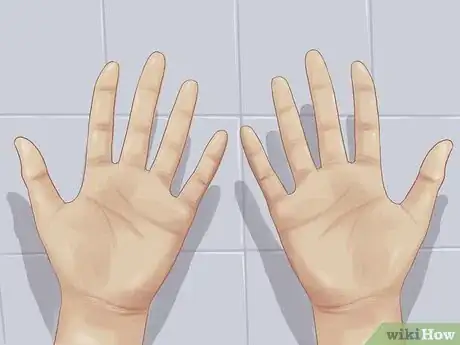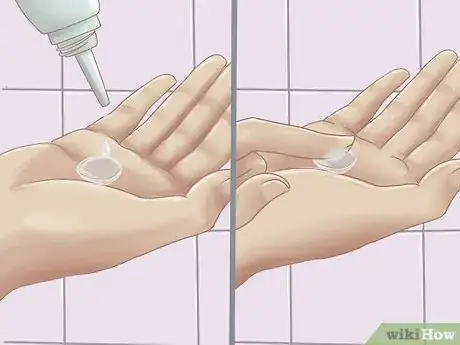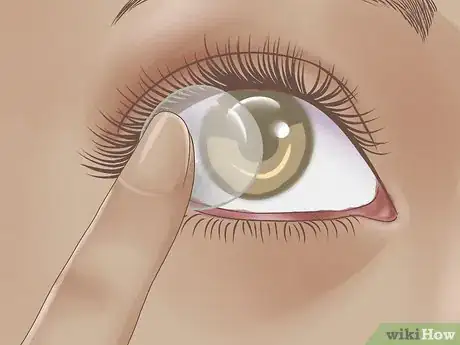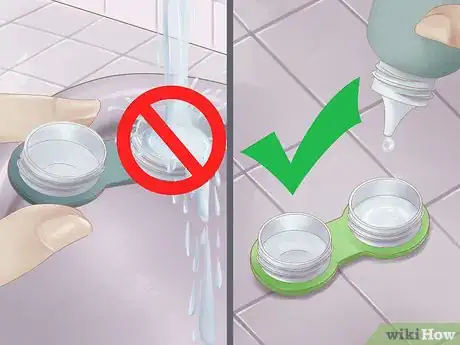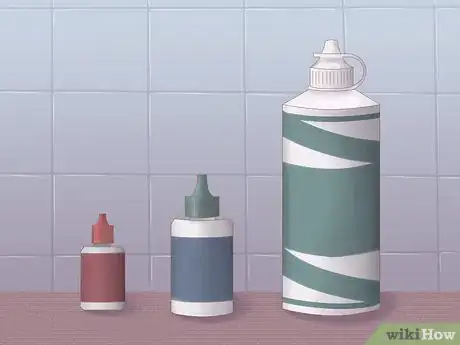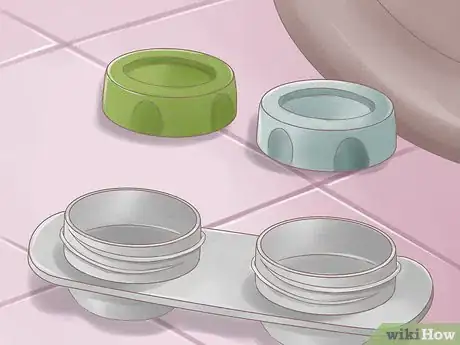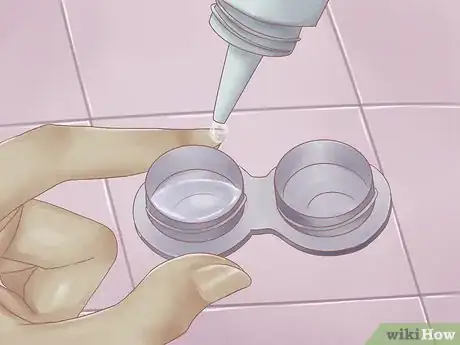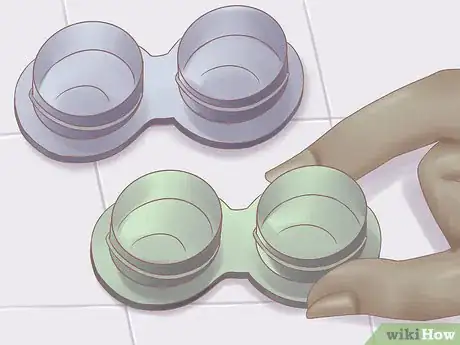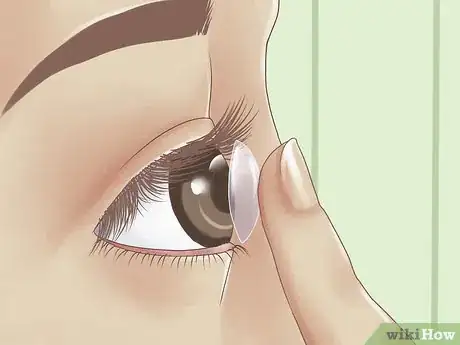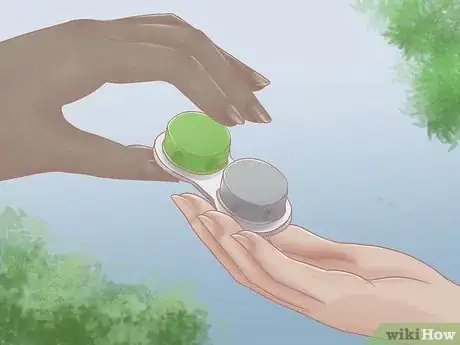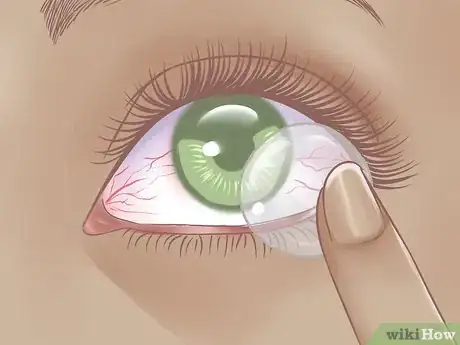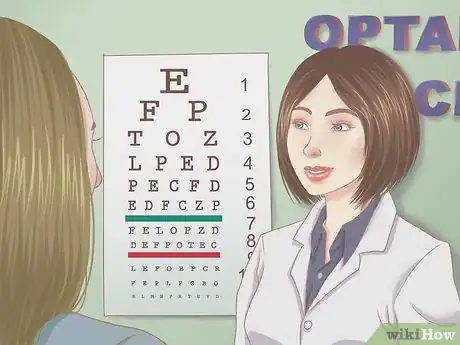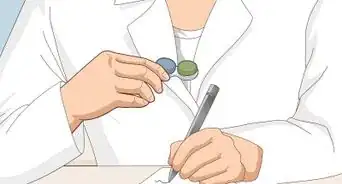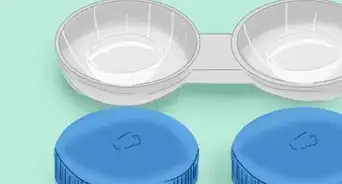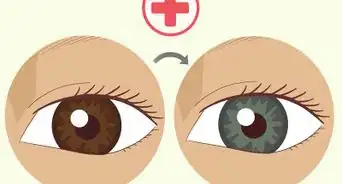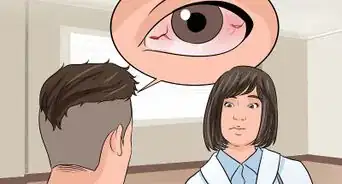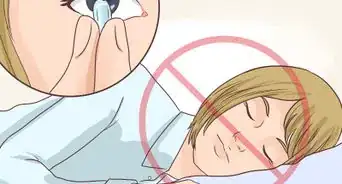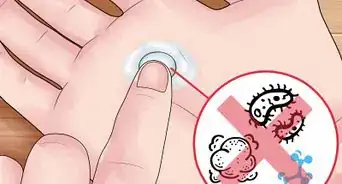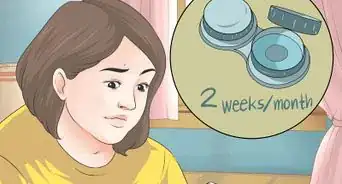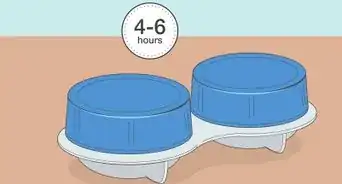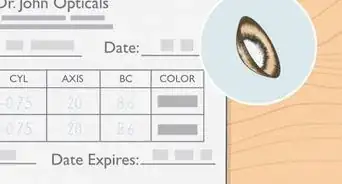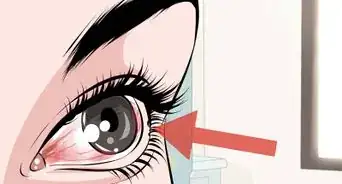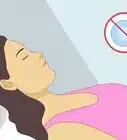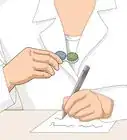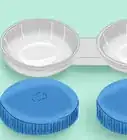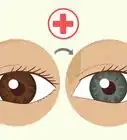This article was medically reviewed by Theodore Leng, MD. Dr. Leng is a board certified Ophthalmologist and Vitreoretinal Surgeon and an Assistant Professor of Ophthalmology at Stanford University. He completed his MD and Vitreoretinal Surgical Fellowship at Stanford University in 2010. Dr. Leng is a Fellow of the American Academy of Ophthalmology and the American College of Surgeons. He is also a member of the Association for Research in Vision and Ophthalmology, the Retina Society, the Macula Society, the Vit-Buckle Society, as well as the American Society of Retina Specialists. He received the Honor Award by the American Society of Retina Specialists in 2019.
There are 7 references cited in this article, which can be found at the bottom of the page.
wikiHow marks an article as reader-approved once it receives enough positive feedback. In this case, 93% of readers who voted found the article helpful, earning it our reader-approved status.
This article has been viewed 179,447 times.
If you wear contact lenses it's essential to look after them to keep your eyes healthy and in good condition. How you care for your lenses will depend on what kind you use, but there are important principles of cleanliness and care that apply to all types of lenses. If you don't use daily disposable lenses you need to make sure that you take especially good care of them, as well as the case you keep them in when you are not wearing them. Remember to follow your eye doctor's guidance and contact them if you are experiencing any difficulties.
Steps
Caring for Your Lenses
-
1Have clean and dry hands when handling your lenses. The first thing to remember is to that you must clean and dry your hands before you put in, or take out, your lenses. Wash your hands thoroughly with mild soap and water before handling your lenses.[1]
- Dry your hands with a lint-free towel after washing them.[2]
- You don't want any fluff or lint to get into your eyes.
- If you are putting on makeup, put your lenses in first.
- Take your lenses out before removing makeup.
-
2Gently rub your lenses to clean them. You can clean your lenses individually to remove any surface build-up. Squirt a little lens cleaning solution, or multi-purpose solution, into the palm of one hand. Then place the lens in the solution and rub it gently with your index finger.[3]
- After rubbing them, rinse them with solution.
- This "rub and rinse" method is considered very effective.[4]
Advertisement -
3Take care when you are putting in and taking out your lenses. It's important that don't put in contact lenses that will irritate your eyes. Before you put in a lens, hold it out on your index finger and check for tears or debris. Then carefully place it on the centre of your eye as normal. When you take a lens out, be gentle or you risk tearing it.
- Check to see if your lens is right side out. You don't want to put on lenses upside down — they won't fit correctly and could irritate your eye.
- If you are struggling to put in or remove your lenses ask for guidance from your eye doctor.
- If you have long, pointed, or slightly ragged fingernails take extra care not to damage the lens or scratch your eye.[5]
-
4Do not use water or saliva on your lenses. It's very important that you only use the specialized cleaning, storing and disinfecting solutions on your lenses. Also, do not wash or rinse them in water, saliva, or anything else. Micro-organisms in the water can cause infection or even damage your sight.[6]
- Do not attempt to rinse your lenses in your mouth, this is asking for an infection.
- Don't expose your lenses to any kind of water, including bottled, distilled, ocean, lake and tap water.[7]
- For the same reasons, you should take them out before swimming or getting in a hot tub.
-
5Use the correct contact lens solution. Different types of lenses will require the uses of different types of disinfectant solution. It's important to use the correct one for you, so listen to your eye doctor, as well as reading the label on the product you have.[8] You can use a multi-purpose solution to clean your lenses as well as store them.
- A saline solution can be used for storing lenses, but not for disinfecting them.
- If you use a hydrogen peroxide solution, do not put them into your eyes before completing the required process of disinfecting and neutralizing them.[9]
Keeping Your Case Clean
-
1Refill your case with new solution. Every time you use your lenses you should empty out and refill the case with fresh solution. Do not just top it up, leaving the remaining drops of old solution in the case. Keep it properly refreshed.[10]
-
2Clean your contact lens case. As well as cleaning your hands and lenses, it's important to keep your lens storage case clean and in good condition too. You should rinse it thoroughly with fresh solution after each use. Don't use water for this.[13]
- Don't use a towel or cloth to dry your case.
- After rinsing out your case, leave it open to dry in the air.[14]
-
3Replace the case regularly. You need to keep your case clean, but you will still need to replace it regularly. How often you need to do this will depend on the guidance of your eye doctor and the instructions for the particular product you have.[15]
- It is, however, recommended that you replace the case every three months.[16]
Wearing Your Lenses Appropriately and Safely
-
1Don't wear them for longer than you should. More importantly, do not keep your lenses in for longer than your eye doctor has recommended. Contact your eye doctor directly if you are uncertain how long you can wear a pair of lenses. Your eye doctor can offer you some guidance and even produce a chart so it is easier for you to to keep track of the time you have worn your contacts.[17]
-
2Don't sleep in them. If you find yourself drifting off, make sure to remove your lenses before you fall asleep. Leaving them in while you sleep will dry out and irritate your eyes, so it is to be avoided.[18]
- There are some lenses designed to be left in while you sleep.
- Be completely sure that these are the type you have before sleeping in them.
-
3Do NOT wear somebody else's lenses. This sounds obvious, but it's very important not to share your lenses with anybody, no matter what the circumstances. It would be very unhygienic, and could damage your eyes.[19]
-
4Take them out if they irritate your eyes. If your lenses are irritating your eyes and causing discomfort, don't just leave them in. Remove them, and don't use them again until you've spoken to your eye doctor. If the lenses are contaminated and you keep wearing them any irritation or infection is likely to remain.[20]
- If your eyes have become a little dried out from wearing lenses, take them out and give your eyes a break.
- You can use re-wetting saline drops to refresh dry eyes.
-
5Know when to visit your eye doctor. You should continue to see your eye doctor for regularly scheduled checks.[21] But if you experience more serious symptoms it is important to contact your doctor quickly. If you suffer a sudden loss of vision, persistent blurred vision, or light flashes you should act quickly. Other symptoms that you should look out for are:
- Pain in your eyes.
- Swelling, or unusual redness.
- Prolonged irritation or watering.[22]
Warnings
- You should have glasses just in case something happens to your contacts.⧼thumbs_response⧽
- In brief, hygiene is the most important factor that you should take care of for having a pair of clean contact lenses. If you are not sure about the right steps of caring for your lenses, contact your eye doctor for advice.⧼thumbs_response⧽
- Do not re-use saline solution - fresh saline solution should always be used.⧼thumbs_response⧽
- If you experience irritation after dutifully caring for your contacts you may be allergic to your contact solution. Contact your eye doctor in order to find a different solution.⧼thumbs_response⧽
- Wearing contact lenses may cause your eyes to become more sensitive to sunlight. Wear sunglasses with total UV protection and/or a wide brim hat when in the sun.⧼thumbs_response⧽
- Do not put anything (such as tap water) on your contacts. Specially made contact solution and teardrops are okay.⧼thumbs_response⧽
Things You'll Need
- Contacts
- Glasses
- Glasses case
- Contact solution
- Eye drops
- Contact case
References
- ↑ https://us512.directrouter.com/~odskwgnj/wp-content/uploads/2019/05/Healthy-Habits-Scleral-en.pdf
- ↑ http://www.allaboutvision.com/contacts/caresoftlens.htm
- ↑ http://www.webmd.com/eye-health/caring-contact-lens
- ↑ http://www.geteyesmart.org/eyesmart/glasses-contacts-lasik/contact-lens-care.cfm
- ↑ http://www.webmd.com/eye-health/caring-contact-lens
- ↑ http://www.webmd.com/eye-health/caring-contact-lens
- ↑ http://www.myeyes.com/care-for-contact-lenses.shtml
- ↑ http://www.webmd.com/eye-health/caring-contact-lens
- ↑ http://www.allaboutvision.com/contacts/caresoftlens.htm
- ↑ http://www.myeyes.com/care-for-contact-lenses.shtml
- ↑ https://us512.directrouter.com/~odskwgnj/wp-content/uploads/2019/05/Healthy-Habits-Scleral-en.pdf
- ↑ http://www.aoa.org/patients-and-public/caring-for-your-vision/contact-lenses/what-you-need-to-know-about-contact-lens-hygiene-and-compliance?sso=y
- ↑ https://us512.directrouter.com/~odskwgnj/wp-content/uploads/2019/05/Healthy-Habits-Scleral-en.pdf
- ↑ http://www.geteyesmart.org/eyesmart/glasses-contacts-lasik/contact-lens-care.cfm
- ↑ http://www.myeyes.com/care-for-contact-lenses.shtml
- ↑ http://www.geteyesmart.org/eyesmart/glasses-contacts-lasik/contact-lens-care.cfm
- ↑ http://www.webmd.com/eye-health/caring-contact-lens?page=2
- ↑ https://us512.directrouter.com/~odskwgnj/wp-content/uploads/2019/05/Healthy-Habits-Scleral-en.pdf
- ↑ https://us512.directrouter.com/~odskwgnj/wp-content/uploads/2019/05/Healthy-Habits-Scleral-en.pdf
- ↑ http://www.webmd.com/eye-health/caring-contact-lens?page=2
- ↑ http://www.aoa.org/patients-and-public/caring-for-your-vision/contact-lenses/what-you-need-to-know-about-contact-lens-hygiene-and-compliance?sso=y
- ↑ http://www.webmd.com/eye-health/caring-contact-lens?page=2
